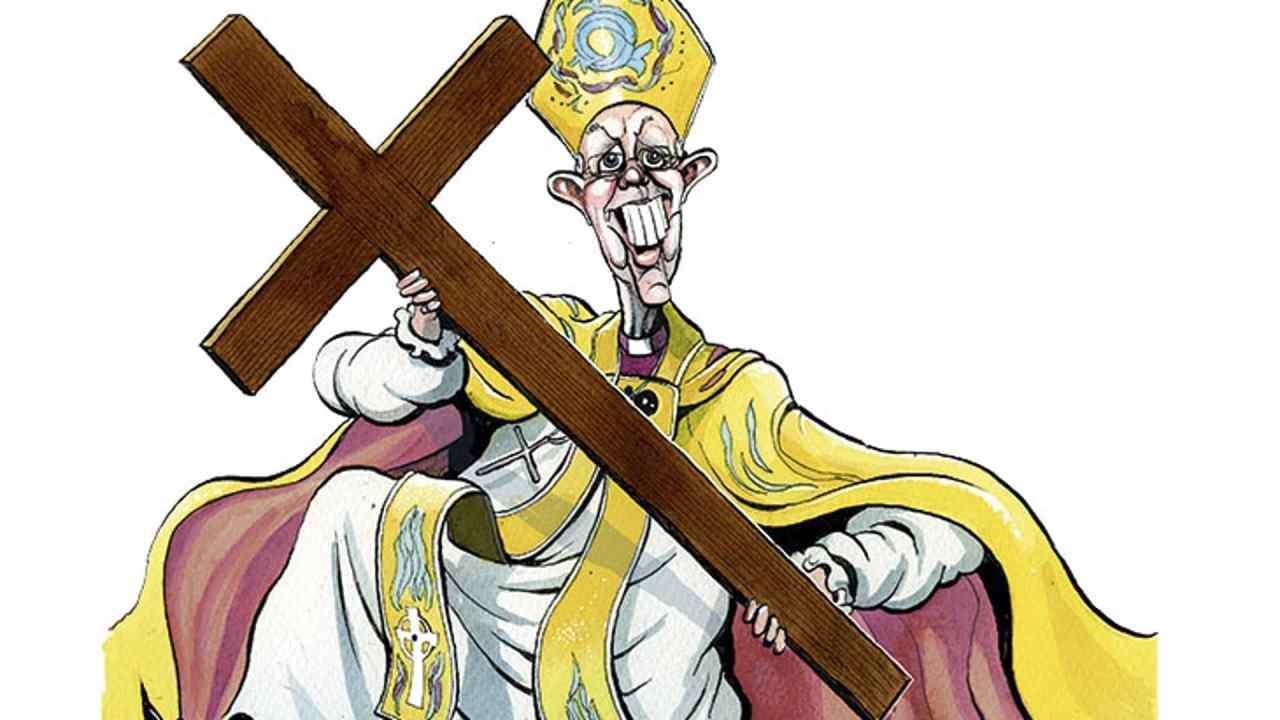Bishops are in the news at the moment. They have outraged No. 10 with their opposition to the policy of deporting potential asylum seekers and other migrants to Rwanda. Government ministers are said to be muttering darkly about evicting the Bishops from the House of Lords, effectively disestablishing the Church of England in revenge.
This has been a long time coming, with the Bench of Bishops developing a worrying uniformity of political and theological opinion – all of a soft-left, soft-evangelical manner. The most startling example of this is the way in which a significant majority of Anglicans supported Brexit while one – only one – bishop, out of 113, did. This can also be seen in pretty much any major policy area today, and it clearly irritates this Conservative government. What this Conservative administration seems to have missed is that all but six of the offending bishops have been appointed by Conservative prime ministers since 2010.
And yet these Conservative prime ministers have had no direct involvement in these appointments because of a decision taken by Gordon Brown to withdraw ministerial involvement in the appointment of bishops (and, at the same time, other posts including the Poet Laureate, Regius Professors, the Masters of various colleges, and the Astronomer Royal). This was a part of a process of surrendering prime ministerial prerogative powers announced in a paper called The Governance of Britain published in July 2007.
Before this, the process was simple. As Ralph Waldo Emerson put it:
Government ministers are said to be muttering darkly about evicting the Bishops from the House of Lords.
‘The King sends the Dean and Canons a congй d’йlire, or leave to elect, but also sends them the name of the person whom they are to elect. They go into the Cathedral, chant and pray; and after these invocations invariably find that the dictates of the Holy Ghost agree with the recommendation of the King.’
What he didn’t mention was that, by this point the King (or, in 1856, Queen) was merely a cypher for the prime minister, whose decisions over who should hold the most senior positions in the Established Church were taken with a keen eye both to theological and political flavour.
Were Emerson around today, he could write exactly the same paragraph describing the formal process of the election of our episcopate. Had he gone further, he would have noted that the King (or, in 2022, Queen) was merely a cypher for decisions taken in No. 10. But now, since 2007, the prime minister himself is merely a cypher: for the Crown Nominations Commission.
This awkwardly composed body, made up of representatives from the diocese in question and from the national church’s Parliament, the General Synod, a few bishops and an Archbishop, was set up by James Callaghan in 1974 to send two names to Downing Street for the prime minister to choose from. It’s worth noting Callaghan’s reasoning behind the process he set up:
‘There are, in my view, cogent reasons why the State cannot divest itself from a concern with these appointments of the established Church. The Sovereign must be able to look for advice on a matter of this kind and that must mean, for a constitutional Sovereign, advice from Ministers. The archbishops and some of the bishops sit by right in the House of Lords, and their nomination must therefore remain a matter for the prime minister’s concern.’
As well as choosing between two candidates, the prime minister could send both names back and ask them to start the process again. Tony Blair did this soon after taking power in 1997 and, on receiving a second set of names scrawled in the margin, ‘Has he any (illegible) in politics or is he basically a well-meaning centre-left typical bishop? If the latter, let’s go for him.’
The plan to withdraw the Executive from its use of prerogative powers was very in vogue in the late 2000s. It has since fallen out of favour, as both the prerogative of dissolution and of the use of armed forces proved themselves essential in the 2010s. The appointment of bishops should be in a similar category. David Cameron, while Leader of the Opposition, clearly realised this, as he sent his PPS, Desmond Swayne, to the Ecclesiastical Committee of Parliament to object to the removal of the prime minister’s prerogative in this field. This objection did not lead to his resuming the power when in office.
But he could have done it, and a future prime minister could as well. Unlike Jim Callaghan, Brown’s reforms were not put into law. It is merely a self-denying ordinance. The prime minister could decide that the appointment of members of the Upper House is, in fact, legitimately a matter for their office to take an interest in.
This would benefit both Church and State. The problem with a committee picking one name is that they always go for the safe option. When you have a second name to play with, you can risk putting a serious academic in the mix (we haven’t had a serious academic made a bishop since this new system came into being), you could risk putting someone in straight from a parish, you could risk a maverick, you could even risk a Tory. You would start getting some diversity of views. (This, incidentally, would also be true of university positions, where diversity of political opinion has died a startling and speedy death since the Brown reforms).
So my advice to the government is to stop moaning about this and actually use the powers the constitution has given you to do something. Perhaps start by taking a leaf from Tony Blair’s book and say ‘no’.







Comments